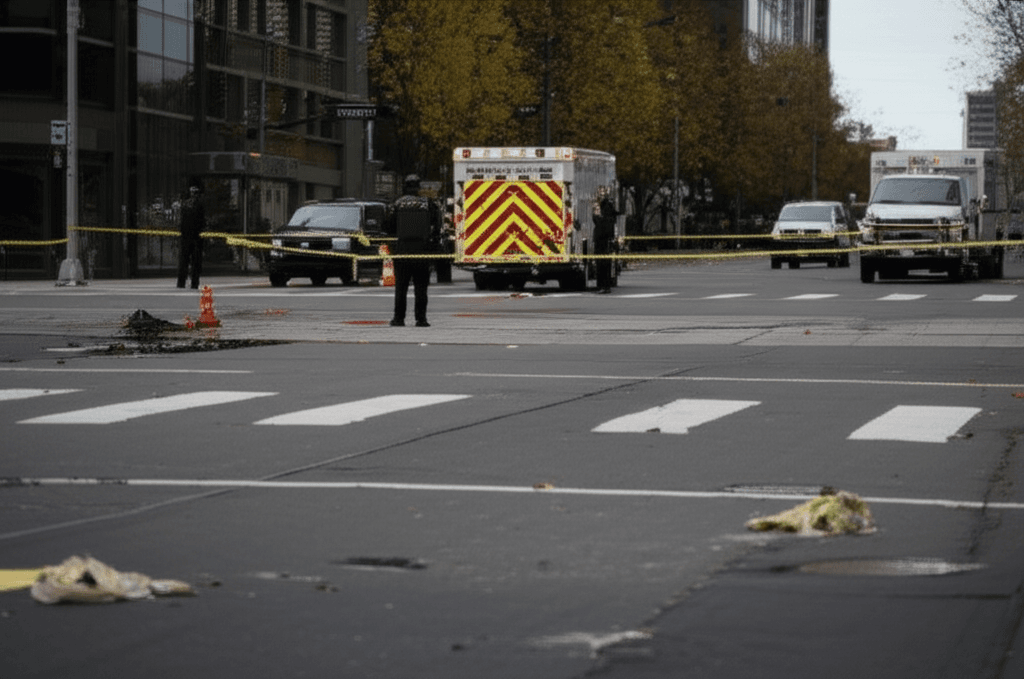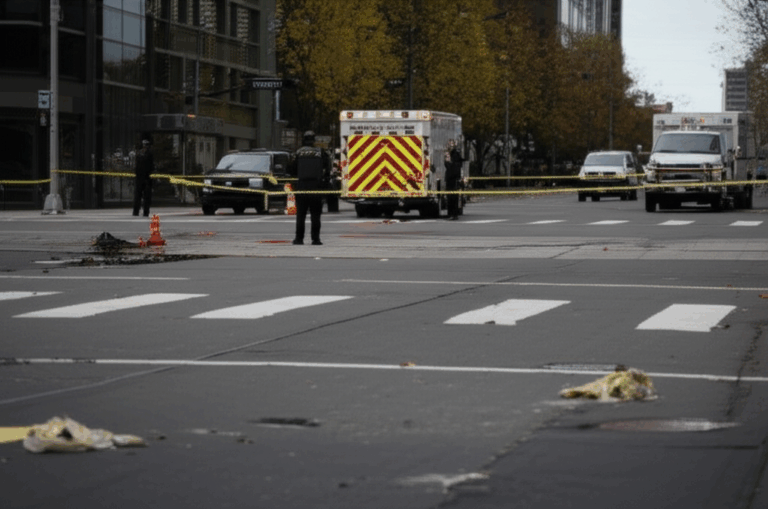VANCOUVER, BC – A hearing commenced this week in Vancouver to determine the mental fitness of Adam Kai-Ji Lo, the 30-year-old man accused of driving an SUV into a crowd at the Lapu-Lapu Day festival in April, an incident that tragically killed 11 people and injured dozens more. Lo appeared in court as proceedings began to assess his ability to understand the charges against him and participate in his defense.
The two-day hearing is critical in determining the trajectory of the legal proceedings, with the outcome directly impacting whether a criminal trial for the horrific incident can proceed.

The Devastating Attack and Its Aftermath
On April 26, 2025, a vehicle-ramming attack unfolded during the Lapu-Lapu Day festival, a public celebration of Filipino heritage in Vancouver, British Columbia. A black SUV reportedly sped through a closed street crowded with festival-goers, causing mass casualties. The attack resulted in 11 fatalities, ranging in age from 5 to 65, and left at least 32 people injured, making it the deadliest attack in Vancouver’s history and the deadliest vehicle-ramming incident in Canadian history.
Vancouver police apprehended Kai-Ji Adam Lo shortly after the incident, stating he acted alone. Investigators quickly ruled out terrorism as a motive.
Charges Laid Against the Accused
Initially, Lo was charged with eight counts of second-degree murder. However, on July 22, Vancouver police laid three additional charges, bringing the total to 11 counts of second-degree murder.
Suspect’s History of Mental Health Interactions
Authorities have confirmed that Lo has a significant history of interactions with both police and healthcare professionals related to mental health. Just the day before the attack, police had contact with Lo in a neighboring municipality, though the interaction was not criminal in nature and did not necessitate a hospital visit. Hours before the incident, a family member had also contacted a psychiatric ward expressing concerns about Lo’s deteriorating mental health.

The Mental Fitness Hearing Explained
The current hearing is a crucial step in the Canadian legal process, designed to ascertain if an accused individual is mentally fit to stand trial.
What “Fitness to Stand Trial” Means
In Canada, the test for unfitness involves determining whether a person is unable, due to a mental disorder, to conduct a defense at any stage of the proceedings. Key questions addressed during such a hearing include whether the suspect can understand the nature and consequences of the proceedings and whether they are able to communicate effectively with their legal counsel.
Potential Outcomes of the Hearing
If Lo is found fit, the criminal trial on the 11 counts of second-degree murder can proceed. If he is found unfit, he would be held in a forensic psychiatric institution for treatment aimed at rendering him fit to stand trial. A review board would then determine if the treatment has made him fit, and it is possible for an individual to be found unfit and later become fit. In some cases, a person could remain in a psychiatric facility for the rest of their life if never deemed fit to stand trial.
Publication Ban and Media Challenge
A judge has imposed a publication ban on the evidence presented during the fitness hearing. This ban aims to prevent the public dissemination of details that could potentially compromise a future trial. However, a media consortium, including CBC News and The Canadian Press, is challenging this ban, arguing that the public deserves to understand the reasons behind a judicial decision regarding a suspect’s fitness to stand trial. The consortium is pushing for the ability to report on the evidence and exhibits, even if the outcome of the fitness hearing itself can be reported.
The hearing is expected to continue, with lawyers potentially making further arguments after a pending Supreme Court of Canada decision that could influence the legal standard for determining fitness to stand trial.

Community Impact and Ongoing Support
The April attack profoundly impacted Vancouver’s Filipino community. RJ Aquino, chair of festival organizer Filipino BC, has expressed that the court proceedings could be “traumatizing” for victims and community members who are still grappling with grief, anger, and confusion. Filipino BC is committed to continuing support for victims’ families and community members, emphasizing the need for ongoing presence and assistance as the legal process unfolds.







